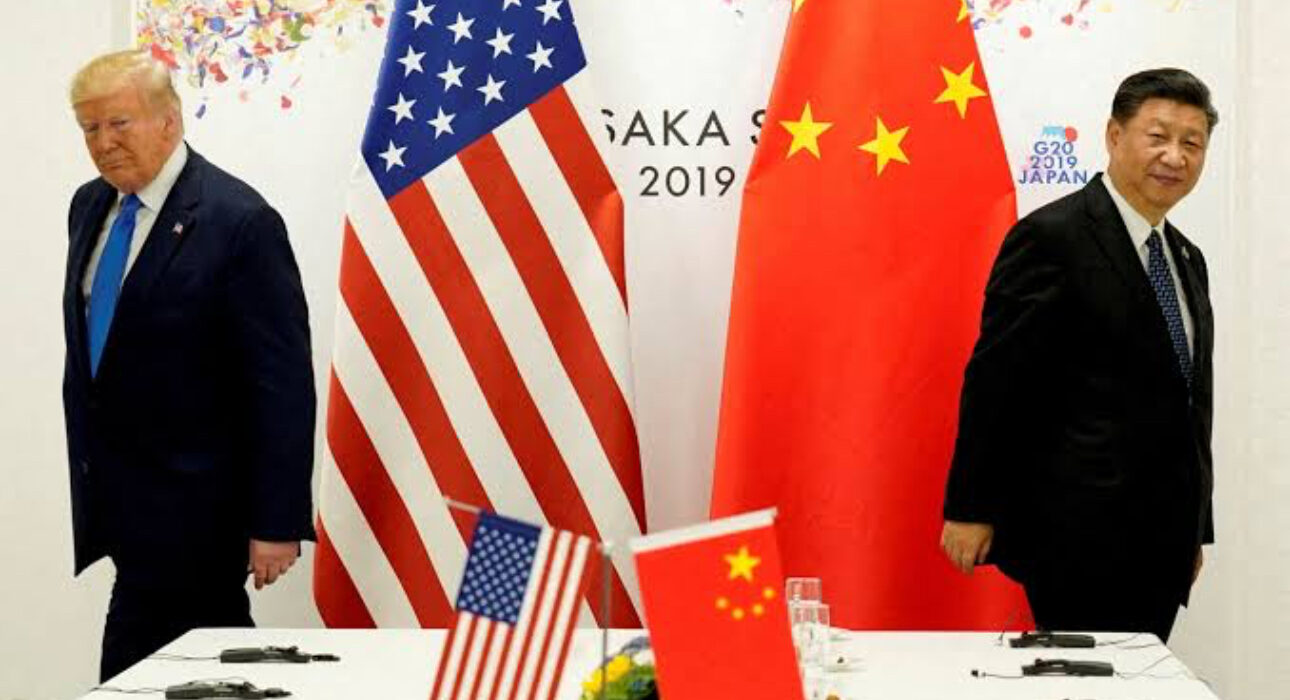Trump Makes Good His Threat, Hits China with 104% Tariffs After Deadline Expires

President Donald Trump has made good his threat and announced that the United States will impose tariffs of at least 104% on Chinese imports starting Wednesday, April 9, 2025.
The move comes after Beijing’s refusal to meet an American deadline to remove retaliatory tariffs on American goods, prompting an immediate and biting reaction from the White House.
The new tariffs, placed on a broad range of Chinese goods, are among the strongest ever implemented by the U.S. government as it continues to fight its trade war with China.
The commodities being targeted are consumer electronics, textiles, chemicals, and industrial goods, all of which make up a significant proportion of U.S. imports from China.
In turn, China has vowed to “fight to the end” and has also imposed tariffs on American products. Starting Thursday, April 10, China will tax American exports by 34%, escalating the trade standoff even further.
Beijing labeled the U.S. move an attempt to slow Chinese growth and has indicated additional countermeasures are on the table unless Washington rolls back the action.
The intensifying trade war between the world’s two largest economies has already exacted a heavy cost on global markets, with stocks plummeting and commodity prices strengthening.
Economists are warning that if tensions persist, they have the potential to shock the global economy, even into recession, if the war rages on further.
The world community has responded with growing dismay to the trade war. Leaders from Europe and Asia have appealed to the U.S. and China to return to the bargaining table to prevent more economic damage.
The leaders fear that if the two nations become more rigid in their stance, the effects will echo across global trade chains to the loss of industries from manufacturing to agriculture.
The tariffs have been called a “disruptive force” in global trade by U.K. officials, and German Chancellor Angela Merkel has bemoaned a lack of progress in resolving the trade row.
The European Union has warned against taking action in retaliation if the trade war continues to intensify.
In addition to the concern of foreign governments, American economists have also criticized President Trump for imposing the tariffs. The new tariffs are going to be a WTO principle violation, argues University of Chicago economist Brent Neiman, and that the tariffs justification argument of the administration is wrong.
The tariffs, argues Neiman, ought to have been much weaker and could have been as low as one-fourth of what was actually imposed.
Economic analysts are also concerned about the longer-term economic impacts. There have been some forecasts by analysts that the tariffs would raise prices for American consumers and lead to job losses in industries that rely on Chinese imports.
The reaction of the financial market has already been experienced, with the major stock indexes suffering losses and investors becoming more risk-averse.
With both nations entrenched, the future of the U.S.-China trade war is uncertain. Experts say both sides may have little incentive to back down in the near term, as the tariffs and countermeasures have become symbols of national pride and economic strength.
As tension escalate, there is a threat of a looming global recession, with economists calling upon the U.S. and China to engage in constructive dialogue in a bid to find an exit.









